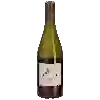
Winery Jean Claude MasCuvée 39 Blanc
In the mouth this white wine is a .
This wine generally goes well with vegetarian, poultry or lean fish.
Taste structure of the Cuvée 39 Blanc from the Winery Jean Claude Mas
Light | Bold | |
Dry | Sweet | |
Soft | Acidic |
In the mouth the Cuvée 39 Blanc of Winery Jean Claude Mas in the region of Languedoc-Roussillon is a .
Food and wine pairings with Cuvée 39 Blanc
Pairings that work perfectly with Cuvée 39 Blanc
Original food and wine pairings with Cuvée 39 Blanc
The Cuvée 39 Blanc of Winery Jean Claude Mas matches generally quite well with dishes of pasta, vegetarian or poultry such as recipes of pasta and peppers, mushroom, bacon and gruyere quiche or buns.
Details and technical informations about Winery Jean Claude Mas's Cuvée 39 Blanc.
Discover the grape variety: Chardonnay
The white Chardonnay is a grape variety that originated in France (Burgundy). It produces a variety of grape specially used for wine making. It is rare to find this grape to eat on our tables. This variety of grape is characterized by small bunches, and small grapes. White Chardonnay can be found in many vineyards: South West, Burgundy, Jura, Languedoc & Roussillon, Cognac, Bordeaux, Beaujolais, Savoie & Bugey, Loire Valley, Champagne, Rhone Valley, Armagnac, Lorraine, Alsace, Provence & Corsica.
Informations about the Winery Jean Claude Mas
The Winery Jean Claude Mas is one of wineries to follow in Languedoc-Roussillon.. It offers 148 wines for sale in the of Languedoc-Roussillon to come and discover on site or to buy online.
The wine region of Languedoc-Roussillon
Languedoc (formerly Coteaux du Languedoc) is a key appellation used in the Languedoc-Roussillon wine region of southern France. It covers Dry table wines of all three colors (red, white and rosé) from the entire region, but leaves Sweet and Sparkling wines to other more specialized appellations. About 75% of all Languedoc wines are red, with the remaining 25% split roughly down the middle between whites and rosés. The appellation covers most of the Languedoc region and almost a third of all the vineyards in France.
The word of the wine: Red winemaking
Transformation of grapes into must and wine under the effect of alcoholic fermentation. The vinification of red wines takes place in several stages: destemming, crushing, alcoholic fermentation, vatting, running off and maturing.














